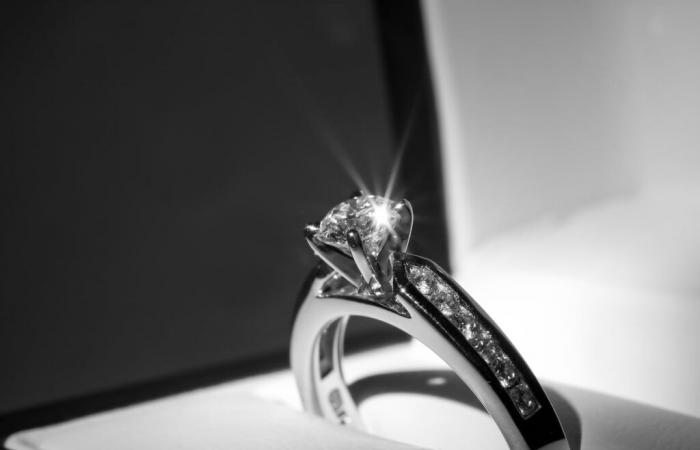That means Caroline Settino, the woman at the center of the case, must return a $70,000 Tiffany’s engagement ring given to her by the man in this case, Bruce Johnson. The decision overturns a ruling in Superior Court that said Settino could keep the ring because Johnson was at fault for the breakup.
What do I think of this decision, as a relationships writer? I know the question of “who gets the ring” is one people love to debate.
My late mother was engaged in the mid-1990s. From my memory, the man she almost married gave her a 4 karat ring. He also gave her a ton of stress — so when the engagement ended, she did ask me, sheepishly, “Do I have to give it back?” Of course I said yes — and she knew that was the answer. We didn’t want anything to do with him.
Twenty-ish years later I believe in the SJC’s decision to remove fault from the breakup equation. Otherwise, it’s very messy, right?
I don’t want it to get blurry, though, when it comes to other gifts. What if two people give each other pieces of art instead of rings to celebrate an engagement? What if contributions to a down payment on a house seem tied to the promise of marriage? How would that work?
To discuss the philosophy of all of this with someone who understands the law, I got on a zoom with my colleague Sean Cotter, the Globe courts reporter who followed this case, about the SJC’s decision.
@lovelettersadvice WHO GETS THE RING? Last week, the Massachusetts Supreme Judicial Court ruled that an engagement rings is a conditional gift, and that “fault” has nothing to do with who gets to keep it. If the marriage doesn’t happen, the ring goes back to the person who gave it – end of story. That means Caroline Settino has to return the $70,000 Tiffany ring given to her by Bruce Johnson. They’re the people at the center of the “who gets the ring” case that made its way to the state’s top court – and turned us into a no-fault Commonwealth when it comes to this kind of breakup. What do we think of this big decision? Well, Love Letters writer Meredith Goldstein and Boston Globe’s courts reporter Sean Cotter zoomed to discuss the complexities of the case. #LoveLetters #SJCRuling #EngagementRings
♬ original sound – Love Letters
Despite my being a writer focused on relationships, and his being a reporter who follows the SJC, we are two people who have never been engaged or married. We tried to make sense of it together.
Meredith Goldstein. Did it surprise you … that a small dispute became a precedent-setting case?
Sean Cotter. You get this whole giant hodgepodge of cases that come before the SJC. The reason why this case is bookmarked in my brain is because I spent a ton of time covering a case that was heard almost immediately after it — which was about the Cambridge brothels. Those are tied together in my head, even they have nothing in common. But that lets you know the spectrum that the SJC is talking about. I was there for Karen Read like two days ago.
MG. That’s a lot of range! Courts aside, if I had said to you six months ago, “Engagement broken. Who should get the ring?,” what would you have said?
SC. I honestly have no idea. The case law is like 65 years old, and so they essentially decided take another crack at it.
MG. This issue of fault is important and dangerous, right? No fault divorces — and no fault everything — removes that [subjective] piece of it. What I think is interesting from the relationship perspective is that [as relationship customs evolve over generations]… we begin to broaden rituals. However, that does not necessarily mean the laws are moving with us. Reading this SJC decision, I’m thinking, they are defining [engagement] as a test period. I think sometimes we like to fool ourselves believing that we can define relationship rules however we want, but often they are rooted in the law.
SC. What you said about how laws don’t necessarily keep up with where we’re at socially: the courts are sort of an inherently lower-case “c” conservative institution — and I don’t mean that in like a political sense, so much as I mean that it’s a principle in law. If there’s not a really good reason to overrule a previous ruling, then you just default to not doing it. And so that’s why, in this case, they’re like, “We realize that we’re overruling what the SJC did six to seven decades ago,” and they had to explain why. That’s why things don’t necessarily change so much in the law as much as I think some people expect them to.
@lovelettersadvice WHO GETS THE RING? Last week, the Massachusetts Supreme Judicial Court ruled that an engagement rings is a conditional gift, and that “fault” has nothing to do with who gets to keep it. If the marriage doesn’t happen, the ring goes back to the person who gave it – end of story. That means Caroline Settino has to return the $70,000 Tiffany ring given to her by Bruce Johnson. They’re the people at the center of the “who gets the ring” case that made its way to the state’s top court – and turned us into a no-fault Commonwealth when it comes to this kind of breakup. What do we think of this big decision? Well, Love Letters writer Meredith Goldstein and @The Boston Globe Courts reporter Sean Cotter zoomed to discuss the complexities of the case – and what might happen if instead of a ring, it’s an “engagement TV.” #SJCRuling #EngagementRings #LoveLetters
♬ original sound – Love Letters
MG. I don’t wear jewelry. [Points to earrings.] These are from the Nordstrom teen section, and they were $7. I can understand maybe [wanting] an engagement TV. Do you believe other items bought this with the intention of next steps would [fall under this ruling]if those next steps were not taken?
SC. That’s a great question, honestly. I guess it depends on what the discussion around it at the time was. For an engagement ring, there’s such a societal understanding. I guess there’s an argument that could be made — if the TV is the engagement gift, then you give it back.
MG. So often we talk about the etiquette of of canceled weddings — what happens If I buy something for somebody on a registry and they don’t go through with the wedding? I wonder, with this precedent, if there will be more demands from community who have given people [gifts and money] because they’ve promised to get married.
SC. The real thing here is the fault element. An engagement ring [is now viewed] as a conditional gift… everywhere, except for Montana. The idea of conditionality of gifts has been the law for a long time, but the idea of the courts essentially being like, “we’re not going to deal in fault here,” is sort of the the big thing coming out of this.
MG: I was recently looking at the divorce documents of someone close to me — it’s an amicable divorce — and I’m reading it, and I’m like, “Oh, everybody getting married should read [divorce documents] before they get married.”
SC. What was it that made you say that?
MG. It’s not until you’re reading that divorce agreement — and what you’re dissolving — that you fully understand what you bought into. There’s so much attention on the beauty of the moment, which is real, but it’s still a contract. If you can read that language — and you can still say, “I know what I’m opting into” — as opposed to a beautiful sunset, the cake, etc. — I think you just go in with eyes open. I think people are very superstitious and worry that knowing will make [a breakup or divorce] happen. … My romantic, but seemingly unromantic, take on it is: the more you know [about the law that applies to your decision, the better]. .. If you are trying to pretend the ritual you’re taking part of is fully separate from all of these [legal] pieces, it’s not a reality. … I would just encourage people google it, read what it is, and maybe you’ll still want to do it anyway — and that’s super romantic.
This interview has been edited and condensed. Meredith Goldstein can be reached at [email protected]. You can send her anonymous questions about everything from dating fatigue, to breakup sadness, to engagement ring drama through the Love Letters form or by emailing [email protected].






